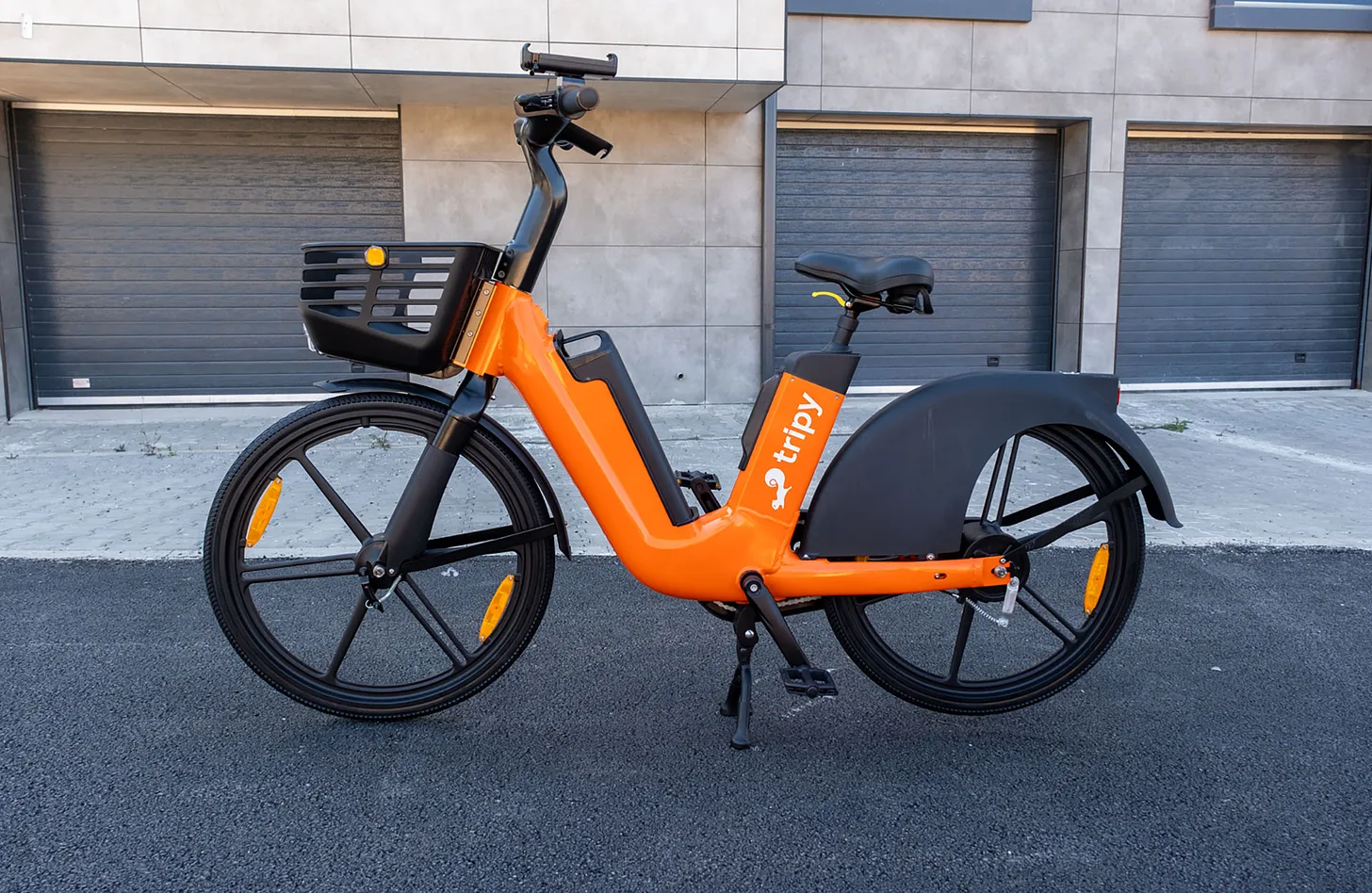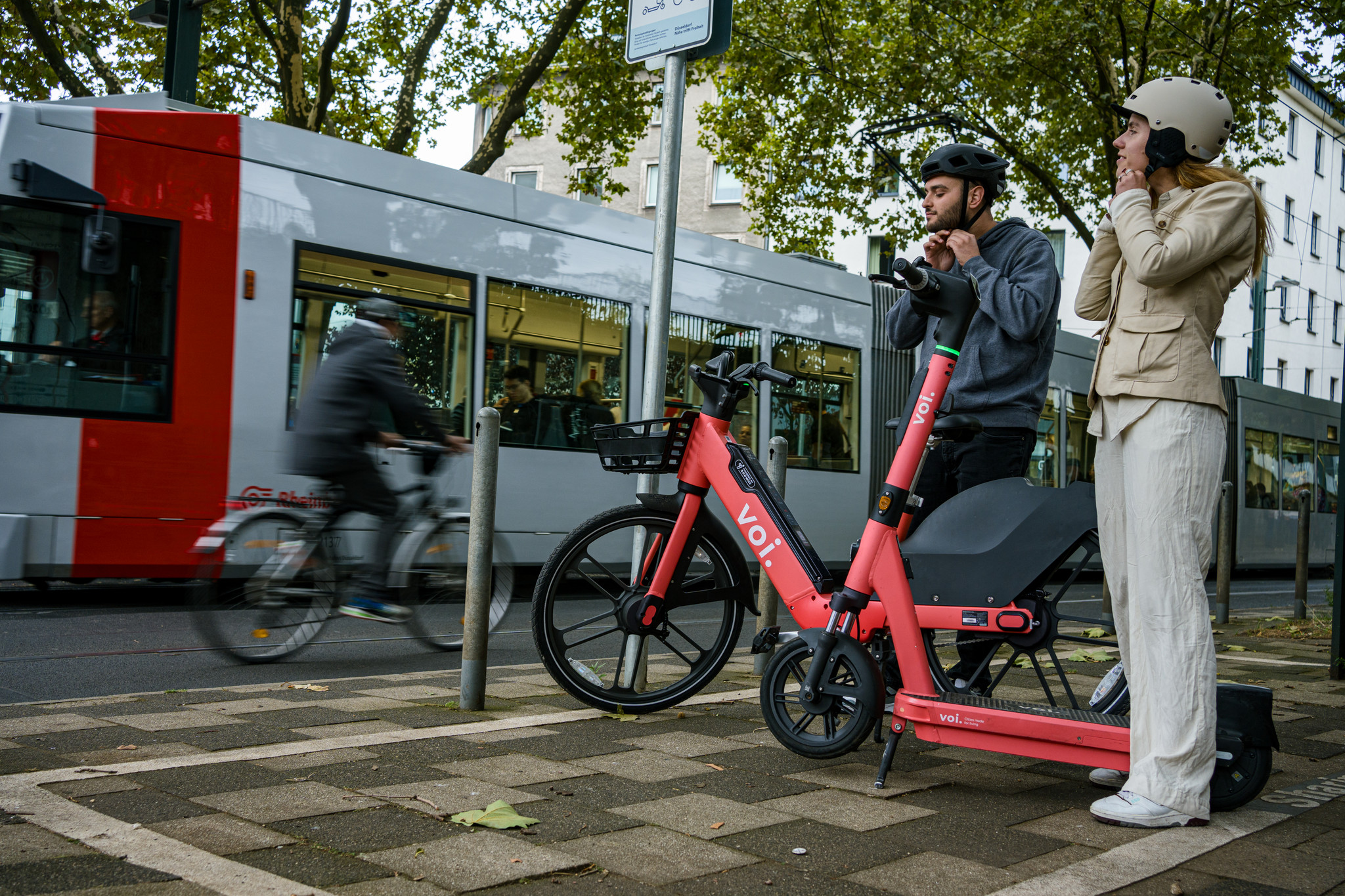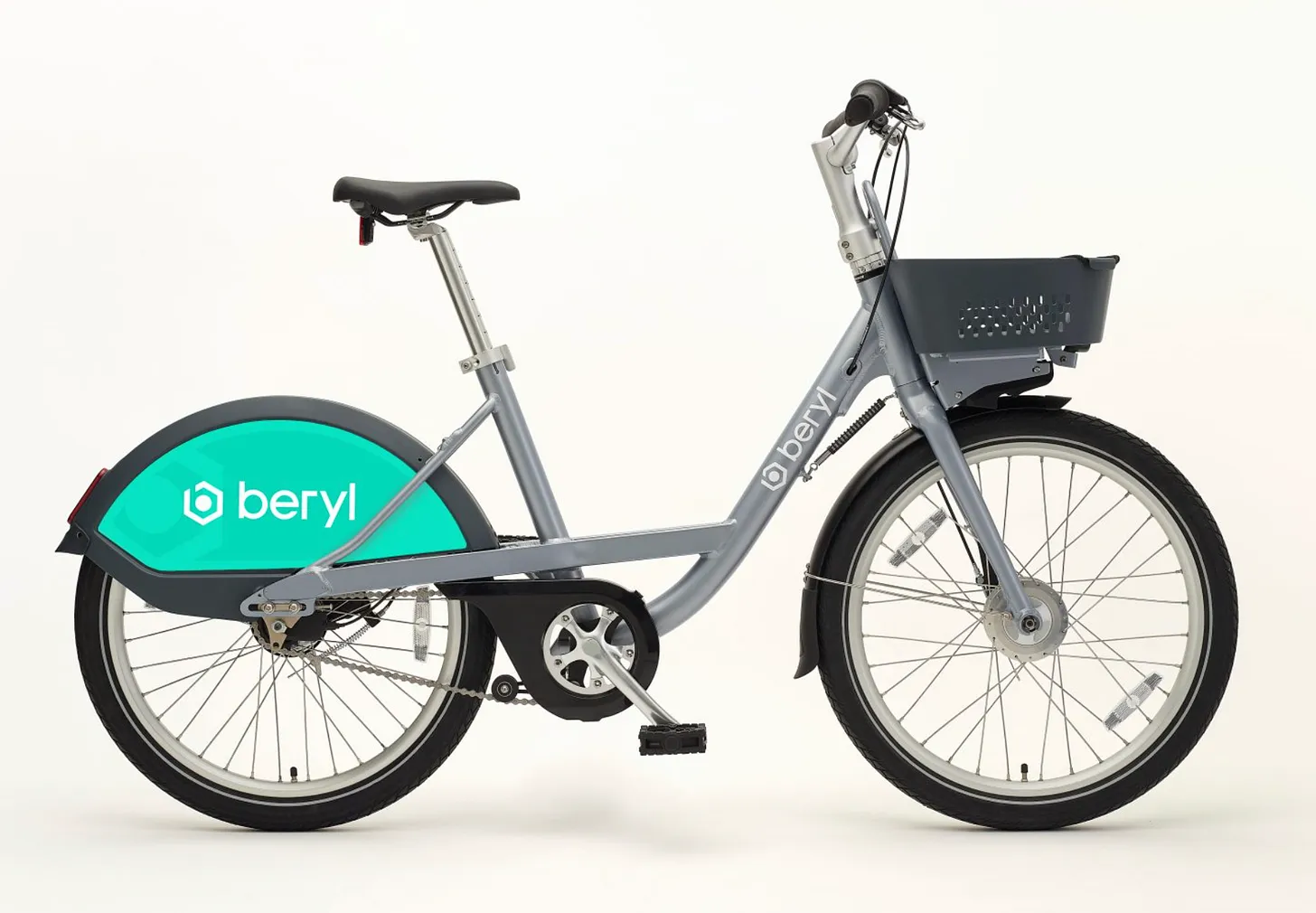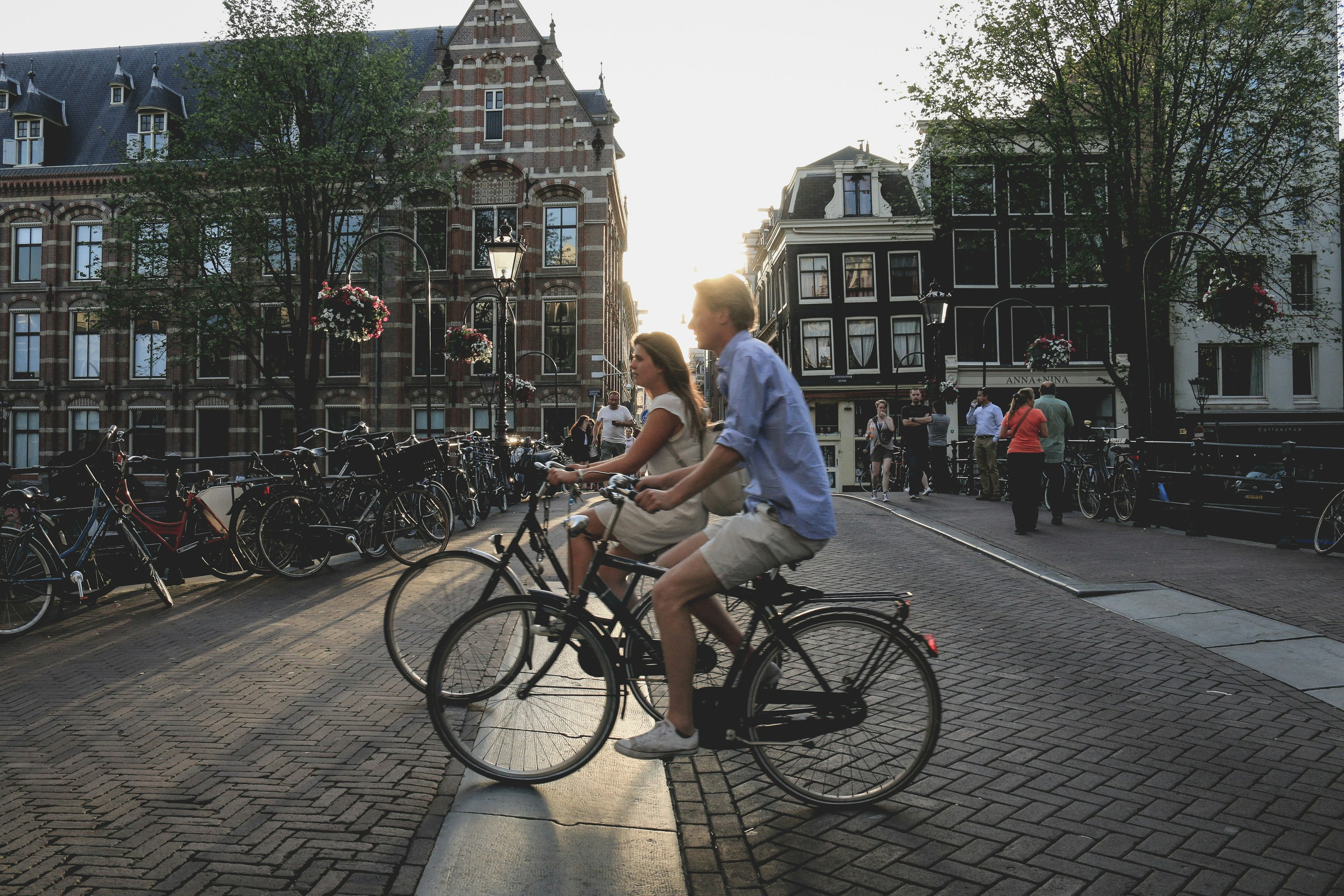You bring the ride, we bring the rundown! Micromobility’s weekly newsletter is your pit stop for all the latest industry twists, turns, and takeovers.
Got Your Micromobility Moment To Share? Email: press@micromobility.io
Hooked but not subscribed? 👀 Now’s the time. You’ll thank yourself later.
Micromobility America 2026

January 14 - 15, 2026 | Palace of Fine Arts | San Francisco
🎟 Early Bird Tickets are on sale now at $349 for a limited time!
Get Involved with the World’s Premier Micromobility Event
Showcase your brand to top industry decision-makers and gain year-round visibility.
✔️ Want to Sponsor or Exhibit?
Snag the last Early Bird exhibitor spots - Get the Prospectus!
🎤 Want to Speak?
Apply now to take the stage - Submit Your Application
→ Browse standout sessions from Micromobility Europe 2025 - here
🚀 Are You a Startup?
If you're under 2 years old with <$1M in funding, apply to join our Startup Arena -Apply Here
🎟️ Want a Free Ticket?
City officials, students, researchers, journalists & academics - Apply Here
What You Need to Know Today
Webinar Alert! McKinsey’s Update on Mobility Shifts!🛴

Join us for the McKinsey Webinar where experts Kathrin Kiefer and Darius Scurtu will discuss the latest mobility shifts and emerging trends. The session will also introduce the potential of Consumer GenAI and its impact on the mobility landscape.
Don’t Miss the Conversation - Register Now
Micromobility: A Long Road to a Short Ride
At Micromobility Europe 2025, Kevin Talbot, Partner at Relay Ventures and early investor in Bird, takes us on a journey through the centuries-long evolution of micromobility.
From the first crude bicycles of the 1800s to the scooter boom of 2017 in Santa Monica, Talbot shows how cultural shifts, external shocks, and breakthrough technologies set the stage for Bird’s explosive rise, and why the road to today’s micromobility revolution has been anything but short.
India's Shared Micromobility Pivots from B2C to B2B

India's shared micromobility sector, once hyped as a solution for urban congestion, has shifted from business-to-consumer (B2C) focused models to business-to-business (B2B) logistics due to cultural, infrastructural, and operational challenges. Key players like Yulu now derive 85-90% of revenue from leasing e-bikes to gig workers from quick commerce. (e.g., Blinkit, Zomato), with revenue tripling from $3.69m (2022) to $14.34m (2024). Zypp Electric supports 22k+ EVs for e-commerce deliveries, while Bounce pivoted from dockless sharing to EV leasing after pandemic losses.
Dott and Pony Win Bordeaux Tender
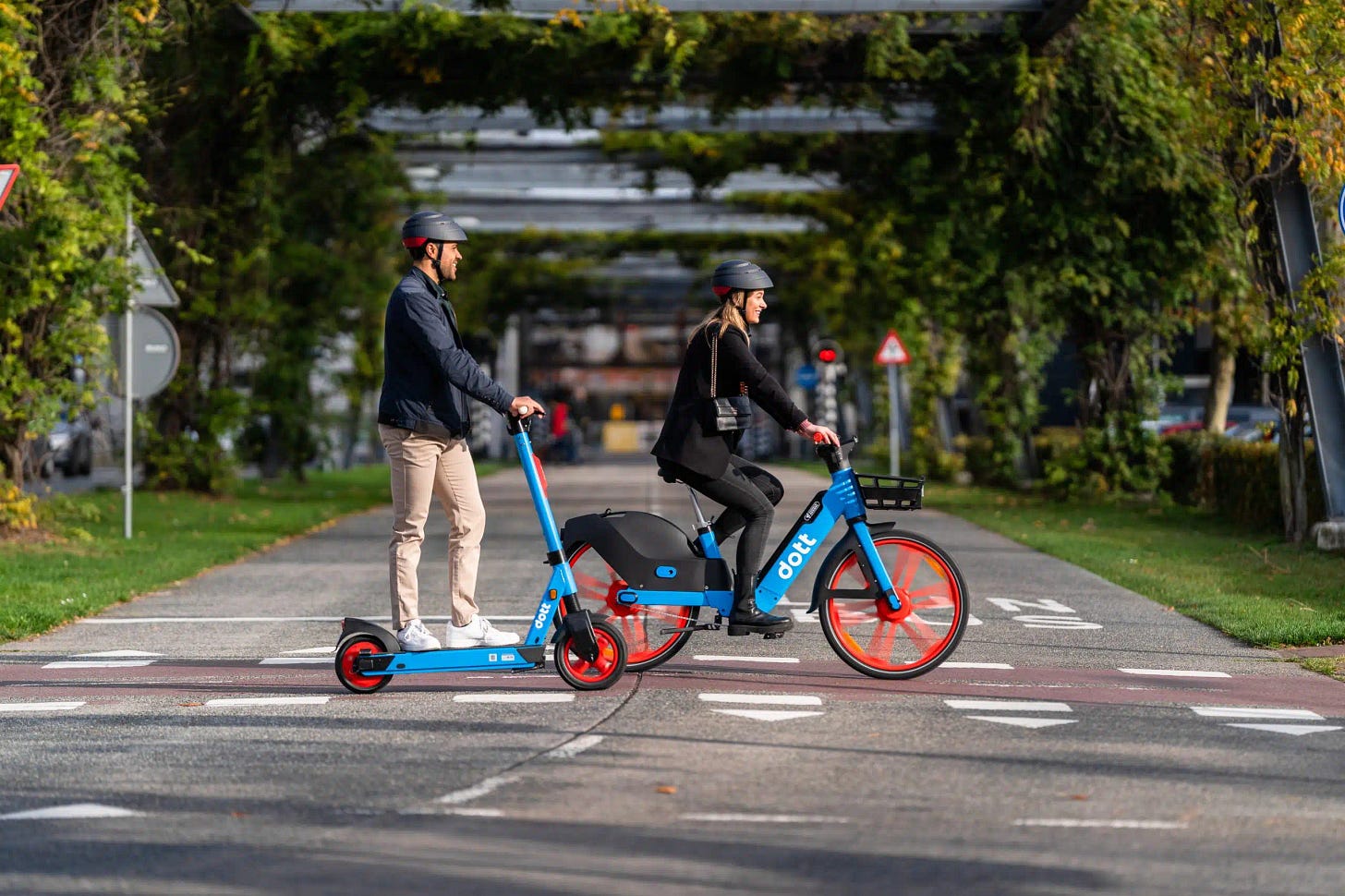
Bordeaux Métropole has selected Dott and Pony as the primary operators for its shared micromobility services from November 2025 through November 2029. Both companies will manage 1k bikes and 1k scooters each, jointly operating 2k e-scooters and 2k bikes across 24 municipalities, forming the core of the city’s free-floating mobility network. Two additional operators, Yego and eDOG, will supply 700 electric mopeds combined.
The new contract simplifies the system by reducing providers and expanding geographic coverage, while also introducing 500 designated parking zones. Dott expands from e-scooters to include bikes, while Pony builds on its long-standing partnership with Bordeaux.
Jobs to Be Done
We’re bringing the micromobility job board back! Ready to ride the wave of new mobility careers? Our Job Board connects you with the coolest gigs in the industry - from startups to game-changers looking for talent like YOU.
On this week’s job posting:
- Head of Operations at Zoomo (Hybrid - NYC, US)
- Marketing Specialist at Micromobility Industries, (Hybrid - Bangalore, India)
Got a job to share? Place an order through the MMI website.
Lime Partners with Call2Recycle for Battery Recycling
Lime has partnered with Call2Recycle Canada to responsibly manage end-of-life batteries from its e-bikes and e-scooters across the country. The program ensures retired batteries are collected, safely transported, and recycled to recover valuable materials for reuse, supporting a circular supply chain. Lime aims to achieve net-zero emissions by 2030 and has already reduced its emissions intensity by 66.8% since setting this goal.
Flanders Overtakes Denmark in Cycling
Flanders is now Europe’s second-largest cycling region, behind the Netherlands and just ahead of Denmark, with one in five trips made by bike. Major investments in bridges, cycle highways, and safer intersections in cities such as Ghent, Antwerp, and Brussels have driven growth, supported by the rise of e-bikes and bike-sharing schemes. With half of all trips under five km, the Flemish government aims to raise cycling’s share to 30% by 2040, backed by annual funding of over €300m. Yet regional disparities persist, with rates above 20% in dense urban areas but closer to 10% in more car-dependent regions, prompting targeted initiatives like cycling lessons for migrant communities.
Voi Launches E-Bike Pilot in Barking
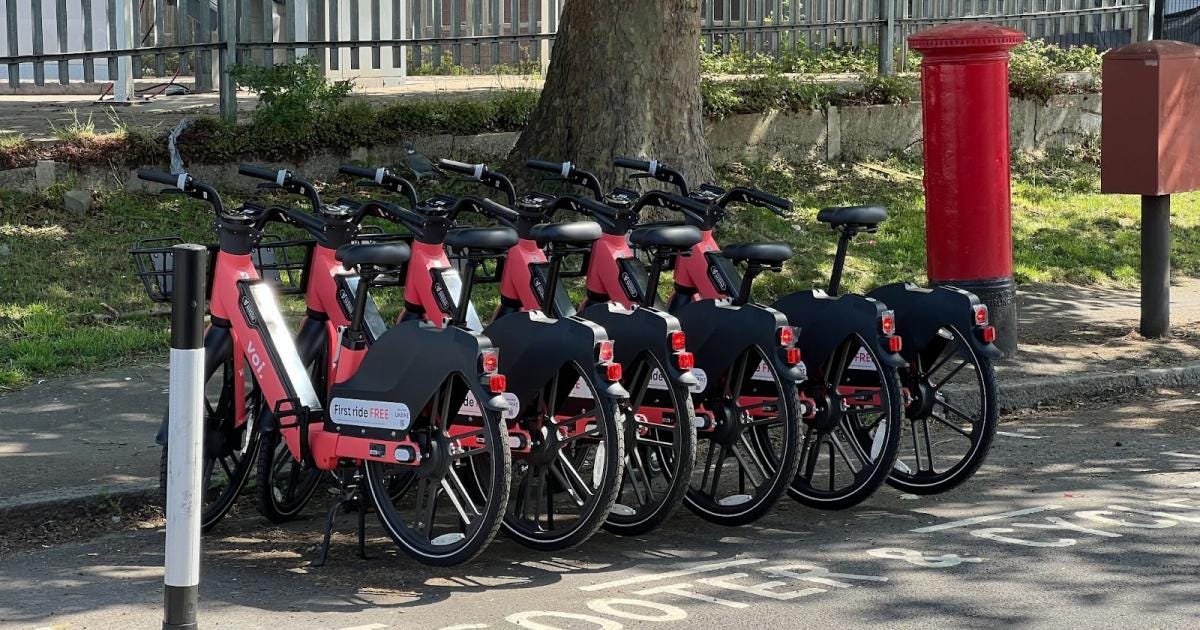
Voi will roll out up to 200 e-bikes in Barking and Barking Riverside this September under a new pilot with Barking and Dagenham Council. The coral-colored bikes will be free to unlock and cost 18p per minute, making a typical five-minute ride less than £1. The initiative aims to cut congestion and emissions while offering residents a safe, affordable, and sustainable way to travel. Voi will also provide free rider training as part of its focus on safety and community partnership.
Prague to Ban E-Scooters from January 2026
Prague will ban shared e-scooters from January 2026 after complaints of unsafe riding and poor parking. However, current operators Bolt and Lime will be allowed to operate e-bikes under stricter rules. Lime and Bolt are pushing for negotiations on regulated operations. The council is expected to finalize the regulation by October 13.
Port Moody Approves $2m Bike Lane Project
Port Moody Council has approved a $2m project to install protected bike lanes along Guildford Way, linking to Coquitlam’s Guildford Greenway. The project will use $1m in city funds and a $1.06m TransLink grant, with design work moving forward.
Baltimore Shared Micromobility Hits New Record

In Baltimore this year, shared micromobility users have already taken over two million trips on scooters and e-bikes, with the fleet expanding to 4.1k vehicles. August set the highest monthly total yet - 384k trips, covering 488k miles in 4.2m minutes, averaging 1.3 miles in 11 minutes. In June 2025, Lime launched its new range of bikes and Lime Gliders, its seated scooter model, to the city’s fleet.
Coquitlam Extends E-Scooter Program
Coquitlam City Council has unanimously voted to extend its e-scooter and e-bike partnership with Lime Canada until April 2027, with an optional one-year extension to 2028. The decision reflects improved compliance, with fewer devices blocking sidewalks since Lime became the sole operator. Ridership totaled 45k trips in 2024 and 33k in the first eight months of 2025. City staff will also study expanding service to Burquitlam at Port Moody’s request to strengthen transit connectivity. The program includes 30 dockless parking stations, has replaced an estimated 35k car trips since its 2023 launch, and has seen 44 parking fines issued, totaling $413.
Segway Launches Lightweight E3 Pro E-Scooter
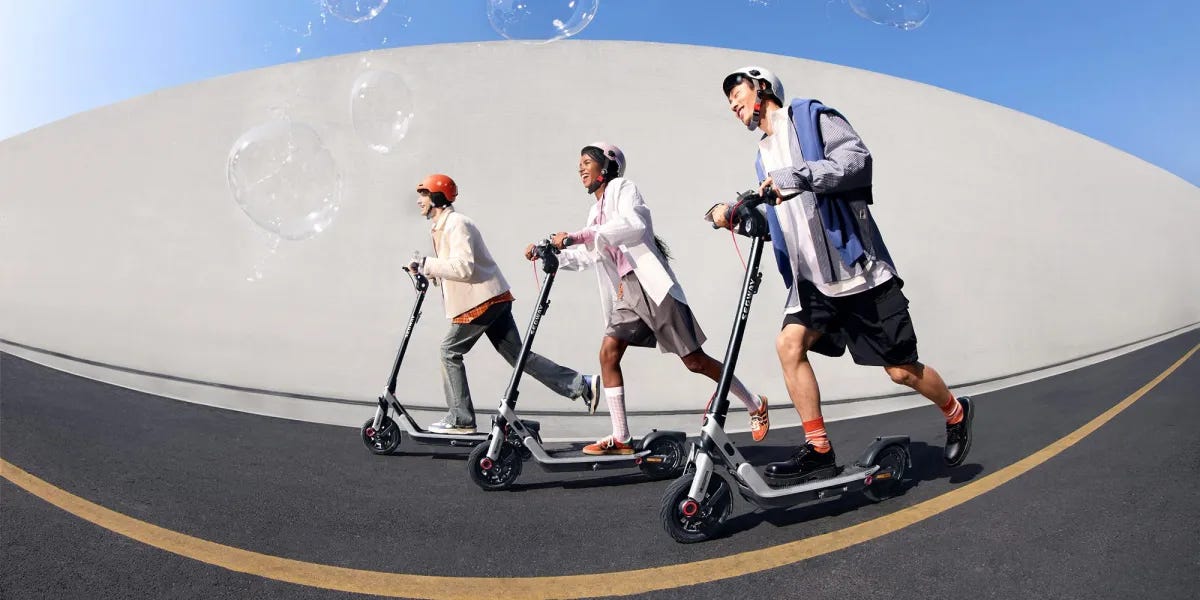
Segway has launched the E3 Pro, its lightest and most compact third-generation electric scooter. Weighing 40.1 lbs, the scooter is powered by an 800W motor, reaches speeds up to 20 mph, and delivers a range of up to 34 miles. Safety and convenience features include Apple Find My integration, traction control, turn signals, front and rear suspension, and a 4W headlight. A Sam’s Club exclusive version, the E3 Pro SE, adds a phone holder and cable lock. Designed for portability and affordability, the E3 Pro is aimed at both first-time riders and commuters seeking a practical last-mile solution.
Mount Prospect Proposes Micromobility Regulations
In Illinois, Mount Prospect has introduced a draft ordinance to regulate e-bikes, e-scooters, and e-motos. Key provisions include:
- Class 1/2 e-bikes (max 20 mph) are allowed on roads, bike lanes, and shared paths.
- Class 3 e-bikes (max 28 mph) are permitted only on roads and bike lanes.
- E-scooters (max 10 mph) permitted on roads, bike lanes, and shared paths.
- E-motos (exceeding 47 mph) are treated as motor vehicles, requiring licenses, registration, and insurance.
Riders of Class 3 e-bikes and all e-scooters must be 16+. Fines range from $50–$500 for violations, with higher penalties for repeat offenses or parents enabling minors. The proposal follows safety concerns, including rising injury rates among children. Community feedback included calls for higher-speed scooter allowances for adults. A final vote is pending.
Got your micromobility moment to share? Email us at press@micromobility.io
Loving the vibe? Hop on and ride with us! Subscribe!

.svg)
%2Bcopy.jpeg)


.svg)


